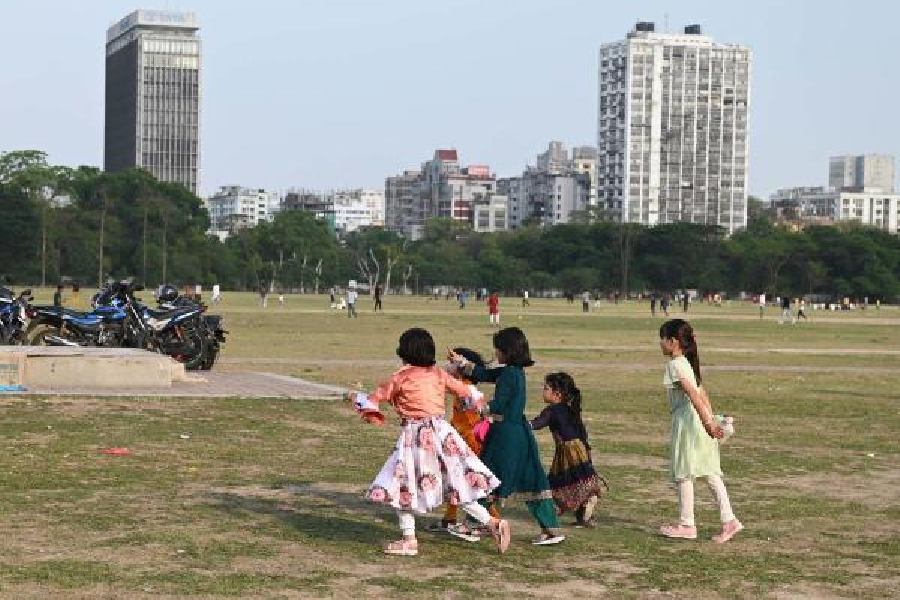Running around the playground or playing a sport with friends for fun has become rare and the expectations to excel even when on the sports field puts enormous pressure on a child, say schoolteachers and medical practitioners.
Not just that, this pressure also takes away the “vital learning” that the sports field otherwise provides.
Children learn to take turns, cooperate on the field and be team players, but “too much of cut-throat competition” and the “drive to win” can only deprive them of these skills.
Coaching institutes have grown in number and parents send their children for specialised training in cricket, swimming, football, karate, tennis, golf or equestrian sports.
When parents are investing “time and money”, their expectations grow and they are desirous of their child bringing home a trophy, or at least being selected for a tournament.
The mother of a Class I student said she does expect her daughter to represent the state in table tennis eventually.
The father of a Class IV student said his son would shine in cricket.
Parents need to realise that most children would love to play a sport but that necessarily does not mean they will be good at it, said a teacher.
Training for a sport does not mean one has to be good at it, the teacher said.
“Being always judged for their performance and playing for rewards or recognition puts an enormous amount of pressure on a child. The sense of competition and to be on the top becomes so overpowering that the child loses out on other important lessons of the sports field,” said Amita Prasad, director, Indus Valley World School.
Teachers said this sense of competition has set in early, as early as when the child is three, four or five.
It only grows with age, they said.
Children are enrolled in multiple activities and there is barely any time for free, unstructured play.
It is not that they do not enjoy a non-competitive sport when they are playing during breaks in the school, teachers said.
“Parents feel that if they win, they will have an edge over others. It is like a badge that would be recognised and appreciated in society or to be shown to neighbours or extended family,” said Ian Myers, principal, Frank Anthony Public School.
Myers said that every day during prize distribution, he tells his students that nobody walks around with trophies or certificates hanging around their neck.
“One is appreciated for the kind of person he or she is and not by medals and certificates,” said Myers.
But the presence of social media and the platform it provides in announcing achievements fuels unhealthy competitions, too, said Prasad.
The breakdown of families and most children growing up alone have also reduced the concept of interacting or playing with one another, said psychiatrist Sanjay Garg.
Many housing societies barely have enough space for children to play. At most, they have a walking track for adults.
“Parents realise they need to put their children into activities and so they opt for a structured environment,” said Garg. Coaching centres also fuel this competition and parents seek feedback from the centres, he said.
“Parents take regular feedback of their child’s performance. So much so that the activity becomes a task for the student. A centre would give top roles to the performers maybe in a skating concert,” said Garg.
Garg said the consequence of such a structured environment is also that it takes away the creativity of a child.
“They concentrate on excelling so much that they focus on individual skills rather than being a team player,” said Garg.
